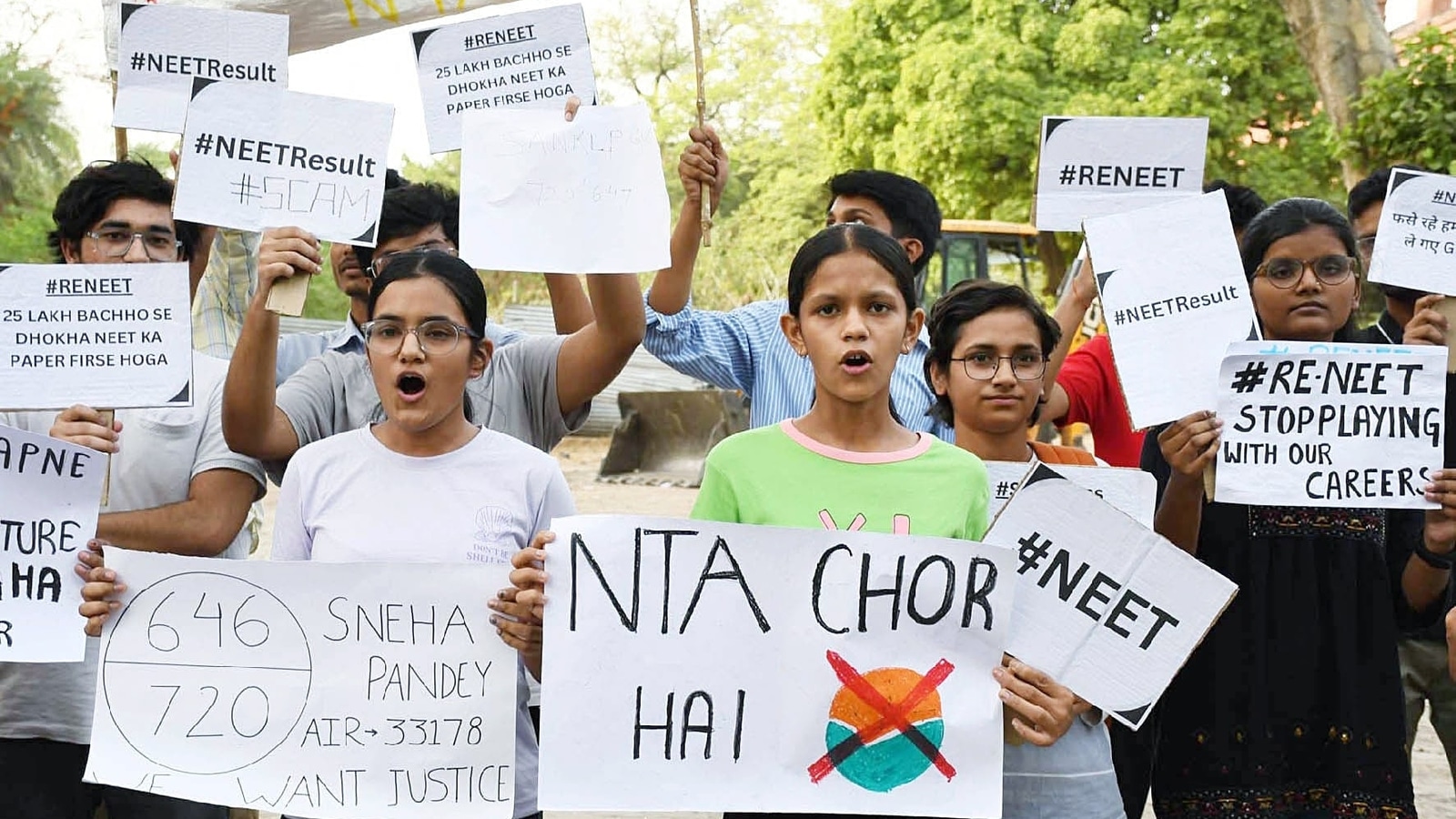On July 8, the Supreme Court stated that canceling the entire NEET-UG 2024 would be an “extreme last resort,” affecting over 23 lakh students. The Court, addressing petitions about the May 5 exam conducted by the NTA, stressed the need to identify beneficiaries of the paper leak. It outlined criteri

AI legal research and drafting tool
On Monday, the Supreme Court stated that cancelling the entire undergraduate National Eligibility-cum-Entrance Test (NEET-UG) 2024 would be an “extreme last resort.”
The Supreme Court, while addressing a series of petitions challenging the NEET-UG exam conducted by the National Testing Agency (NTA) on May 5, noted that the Union Government and the NTA need to make a policy decision regarding the status of counselling. This decision should be made while identifying the beneficiaries of the paper leak is still ongoing.
A Bench consisting of Chief Justice of India DY Chandrachud and Justices JB Pardiwala and Manoj Misra issued the order after hearing arguments from Solicitor General Tushar Mehta, representing the Union government, and Advocate Naresh Kaushik, representing the NTA.
“One thing is very clear, the leak has taken place. The fact that the sanctity of the exam is compromised is beyond question. Now how wide is the leak? We have to determine the nature of the leak… Before we order a retest, we have to know the extent of the leak. We do not live in an ideal world where there is no leak. But a retest affects the lives of 23 lakh students. The cancellation of the NEET-UG exam is the extreme last resort. It would be done only if we have no other go… If we cannot separate the wheat from the chaff, retest would have to be directed,” observed the CJI.
The court deliberated on whether all student beneficiaries of the question paper leak had been identified. It stressed the importance of distinguishing tainted students from untainted ones, warning that if the paper leak was extensive and compromised the integrity of the entire exam, a re-test might be necessary
The Court also noted that if the leak had occurred on social media, it would likely have been widespread. Consequently, the Court outlined the following criteria to determine whether a retest would be necessary:
- Whether the alleged breach occurred at a systemic level.
- Whether the breach compromised the integrity of the entire exam process.
- Whether it is possible to distinguish the beneficiaries of the fraud from the untainted students.
“On the basis of the data on record placed before it, a court has to see if the breach is systemic; whether it has affected the integrity of the entire exam process; whether it is possible to segregate the beneficiaries from the untainted students. In case segregation is not possible, it would be necessary to order re-examination. On the other hand, if the breach is confined to specific centres, it may not be appropriate to order a re-examination, especially when it involves over 23 lakh students,” the CJI explained.
Moreover, the Court stated that if the breach of the exam’s integrity is extensive and it is impossible to separate tainted candidates from untainted ones, a retest may be ordered. However, if the beneficiaries are identified and limited, a retest will not be necessary.
The Court requested the following details from the National Testing Agency (NTA), which conducted the exam:
- When did the leak first occur?
- How were the leaked question papers disseminated?
- What was the time interval between the leak and the exam on May 5?
The Court has asked NTA to inform about the measures taken to identify the beneficiaries of the leak, the steps taken to pinpoint the centres or cities where the leak occurred, and the methods used to identify the beneficiaries.
Additionally, the Court also requested a status report from the Central Bureau of Investigation (CBI) regarding its investigation into the alleged leak and related malpractices.
“We believe that the CBI should submit a status report to this court on the current status of the investigation and any findings that have emerged up to this point,” the Court directed.
The Court further instructed the Central government and the NTA to inform whether it would be feasible for the government’s cyber forensics unit to use data analytics to identify suspicious cases, thereby helping to distinguish tainted students from untainted ones.
The case is scheduled to be heard next on July 11, Thursday.
Vanshika Yadav v. Union of India, W.P.(C) No. 335/2024
.





